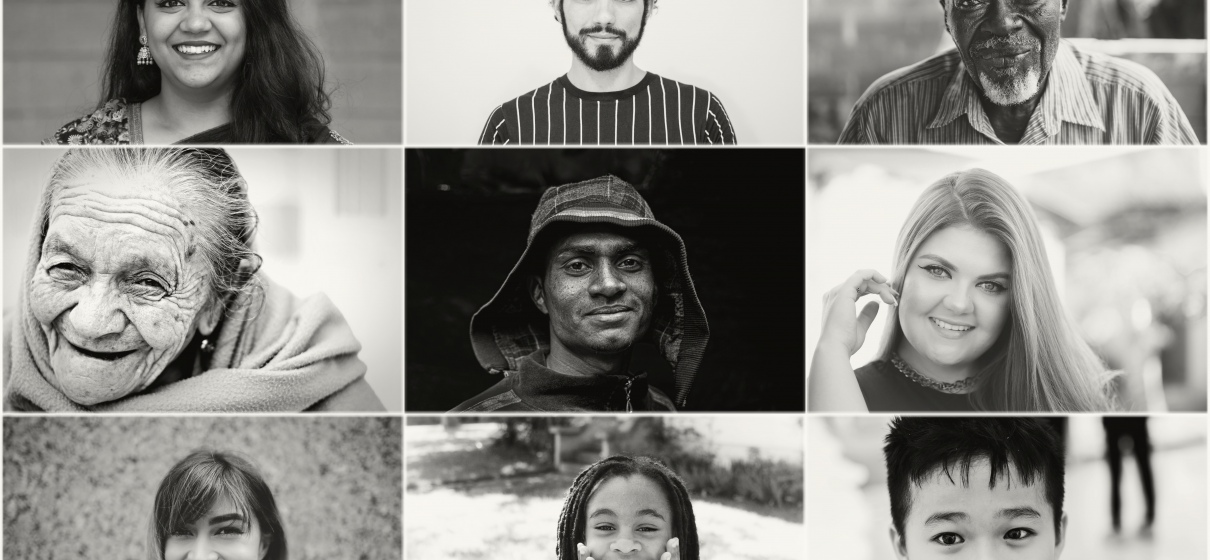Carried by God
When my daughter was young, I would often carry her in a baby wrap, snug and warm and safe. She would calm almost instantly as I pressed her close to myself. My slow and steady movements would lull her to sleep with the assurance that she was safe in my embrace.
But no child remains an infant forever. My oldest daughter is too grown up to let me carry her any longer, wanting instead to prove her capability. She insists on independence, often telling me, “I know what I’m doing, Mom.”
As you might guess, the apple doesn’t fall far from the tree. I also often resist the help of others. I like to be in control, and being helped often means losing some control. This attitude especially emerges in times of stress and uncertainty.
This season of COVID-19 is rife with fear, worry, and anxiety for many of us. Grappling for control over each new situation, I have caught myself slipping into old mindsets that take me away from reliance on the Lord. Our resistance to receive help may seem harmless, initially, but it always attacks our relationships with God first. When we rely on ourselves too much, we fail to rely on him. If this continues, we miss out on the source of peace and comfort we need most in times of uncertainty.
Most children eventually outgrow their need for their earthly parents, but we never outgrow our need for God.
Throughout the Old Testament, we see God shepherding the nation of Israel, his chosen people. As the Israelites prepared to enter the Promised Land after wandering the desert for forty years, Moses recounted the mistakes of the previous generation. God had brought them to the land he had provided, commanding them to take it without fear of the enemies who lived there.
Then I said to you, ‘Do not be in dread or afraid of them. The Lord your God who goes before you will himself fight for you, just as he did for you in Egypt before your eyes, and in the wilderness, where you have seen how the Lord your God carried you, as a man carries his son, all the way that you went until you came to this place.’
Deuteronomy 1:29-31
The Israelites had seen the mighty works of God: their deliverance from Pharaoh’s slavery, the parting of the Red Sea, and his provision of manna in the desert, among other things. Moses reminded them that God carried them all the way, providing every need while they walked through the unknown, as a good Father should. But despite all they had seen, their despair over their circumstances was greater than their faith in their Father’s care. Convinced that the difficulty was just too much, that generation missed out on entering the land God had promised them. And we are just as susceptible to reliance on ourselves.
Like an infant, I become restless in uncertainty. Eyes blinded by fear. Mind clouded by a lack of understanding. Hands clenched onto any control I can grasp. Convinced of my own competence and oblivious to my need for the Father who carries me.
We’re all walking through many unknowns right now. And though we may desire to trust God, we often resist his help and rely on our own competence. When we catch ourselves falling into that mindset, let’s turn back toward God.
Even in times of great difficulty, we can trust our Good Father.
He is always near, fighting for us in our most desperate situations and carrying us through seasons of fear and uncertainty. The Israelites lived with God’s presence among them yet did not truly see him for what he was. Because of Christ’s work on our behalf, we can walk in the light of his love, set free from sin’s power and relying on his rescue.
Let’s relinquish some of our self-reliance and control. Holding the circumstances of our lives with an open hand, instead of a tight grip, enables us to relax into God’s capable arms. And when we allow ourselves to be carried by God, our eyes will be opened to the work he is doing.
Exchange your self-reliance for faith in our ever-reliable God—the only one fully capable of handling our burdens. When we lean in, our good Father presses us closer to himself.
He will carry us all the way.










